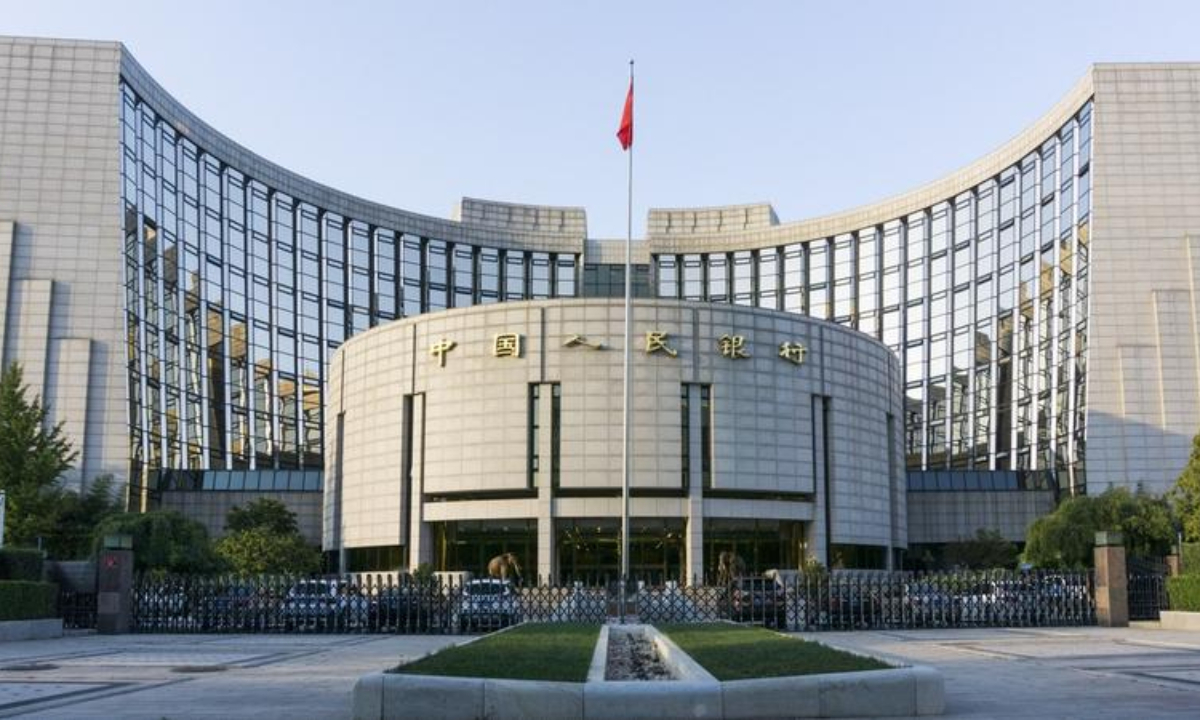
The headquarters of the People's Bank of China in Beijing Photo: IC
China's first cut this year in the amount of cash that banks must hold as reserves took effect on Monday, releasing medium- and long-term liquidity of around 550 billion yuan ($80 billion). Experts said that China's responsible financial policies will stabilize market expectations, while further cementing the economy's sound recovery momentum.The reserve requirement ratio (RRR) cut of 0.25 percentage points sends a strong signal that the authorities aim to stabilize growth and meet liquidity demand amid the ongoing economic recovery, Yan Yuejin, research director at Shanghai-based E-house China R&D Institute, told the Global Times on Monday.
The move will have a positive impact on the real economy, and it will benefit markets and the property sector, he said, noting that the RRR cut will reduce commercial banks' lending costs and thus increase financial support for sectors including property.
Thanks to policies to support the sound development of the real estate sector, warming signs have been noticed in the first two months. Housing sales by floor area fell 3.6 percent year-on-year over the period, narrowing 20.7 percentage points compared with the decline in the whole year of 2022, according to data released by the National Bureau of Statistics.
The RRR cut came earlier than expected, which will improve investors' sentiment, especially as the US and the EU are being confronted with unfolding bank crises, Dong Dengxin, director of the Finance and Securities Institute of the Wuhan University of Science and Technology, told the Global Times on Monday.
While ultra-loose monetary policies and aggressive financial tightening in the US and EU have dealt blows to their economies and banks, China maintained a prudent monetary policy, Dong said. China's implementation of a neutral monetary policy, without excessive stimulus, left room for policy adjustment in 2023, Dong noted.
On Monday, the benchmark Shanghai Composite Index dipped 0.44 percent to 3,251.40, the Shenzhen Component Index inched up 0.12 percent to 11,647.94 and Shenzhen's ChiNext market rose 1.17 percent to 2,398.02.
In the first two months of 2023, the profits of China's major industrial firms fell 22.9 percent year-on-year to about 887.21 billion yuan, data from the National Bureau of Statistics (NBS) showed Monday.
Although industrial production has rebounded, market demand hasn't fully recovered, NBS statistician Sun Xiao said, noting that industrial profits will gradually recover, as the base effect will dissipate along with the continuous recovery of market demand.
"The Chinese economy is expected to post a more remarkable performance in 2023 and become a locomotive of the world economy," Dong said, noting that more international capital and foreign institutions will seek safe havens in China amid the bank crises and potential economic recession in the West.
Global Times

